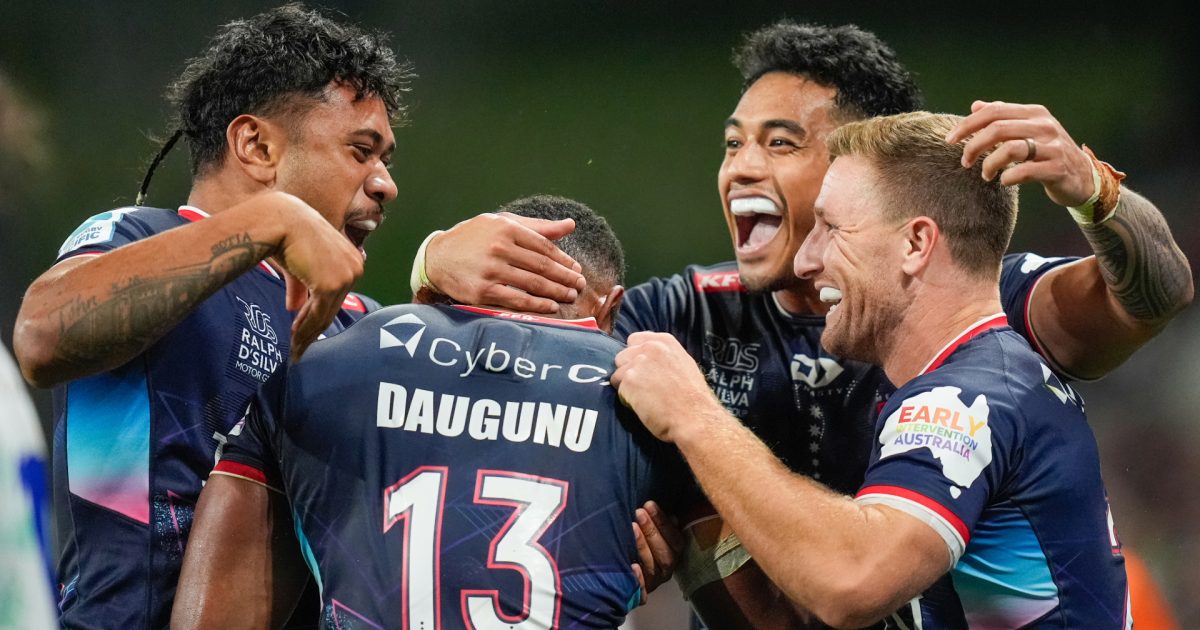‘Little Engine That Could’: Melbourne Rebels ‘competitive’ with the best

Former Wallaby Cameron Shepherd has described the Melbourne Rebels as the “Little Engine That Could” in Super Rugby Pacific after their turbulent season to date which has included plenty of headline-grabbing ups and downs.
The well-known children’s book ‘The Little Engine That Could’ by Watty Piper was published in the 1930s. The story initially conveys messages of challenges and hardships, but the theme mainly centres around perseverance and self-confidence.
In southern hemisphere rugby this season, the Rebels have played a similar role to the small blue engine from that book. No team in Super Rugby Pacific has experienced the same highs or lows as the team now ranked fifth on the ladder.
While an element of uncertainty remains about the future of the club, although a report last week said they may be bought out for as much as $30 million, the players have let their rugby do the talking during the seven games so far in 2024.
With four victories from seven starts, which includes a 41-20 win over the Fijian Drua at AAMI Park on Friday night, former Wallaby Cameron Shepherd believes the Rebels have proven that they’re “definitely competitive with some of the best.”
“A Little Engine that Could. It’s been such an up and down season for them so far,” Shepherd explained on Stan Sports’ Rugby Heaven.
“When they put it together, they’ve definitely competitive with some of the best teams in the comp.
“Carter Gordon’s starting to find his confidence again (with) some nice work on the edges, and the forward pack, which I actually think was one of their biggest problems at the start of the season, has really started to mould into a cohesive unit, especially at the set-piece.”
After six games, the Rebels had a 3-3 record. The Melburnians had beaten the Western Force, Moana Pasifika and NSW Waratahs but suffered some big losses as well.
The Rebels were placed in the top four earlier in the season before suffering a 53-26 loss to Aussie rivals the Queensland Reds and a 54-28 thrashing by the Hurricanes in Palmerston North.
But back playing at Melbourne’s AAMI Park for the first time since March 15, the Rebels wanted to give their home fans something to smile about last Friday. It wasn’t easy but the hosts won the night with a 41-20 scoreline over the Drua.
The Drua led by 20-8 before the Rebels fought their way into a 14-point lead. Two red cards against the Fijians all but sealed their fate as the Aussies moved up to fifth on the ladder with their second win in as many games.
“It was one of their biggest recruitment targets. Kevin Foote had a really clear plan on a style of game plan, we saw it last year starting to come into play,” 2001 Super Rugby champion Justin Harrison added.
“They wanted to score points. They’re adventurous in what they did (but) they just didn’t have that backend and size and physicality to be able to hold on for the full 80 minutes.
“They’ve put a new squad together, it’s taken a couple of weeks to get that car started, but now it’s moving forward.”







































































